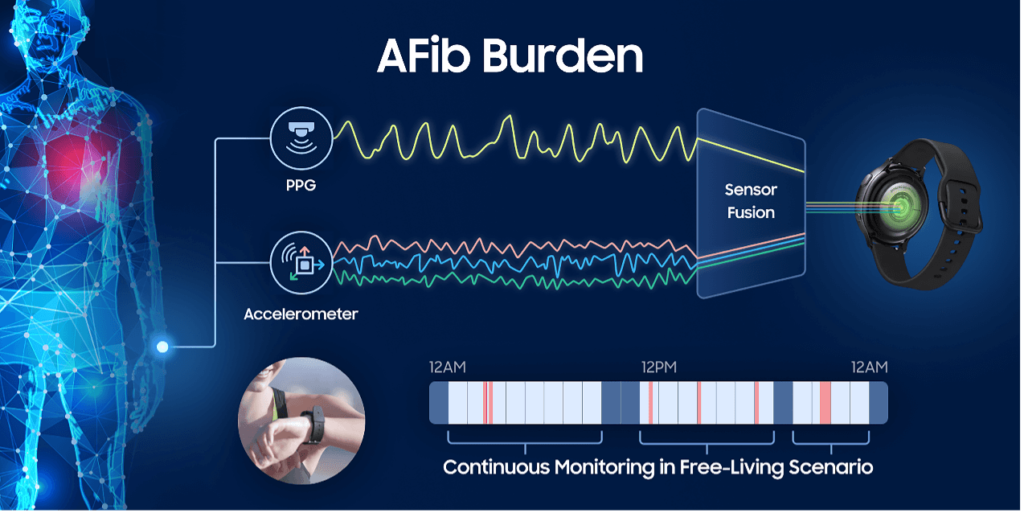
Atrial Fibrillation (AF) is an important cardiac rhythm disorder, which if left untreated can lead to serious complications such as a stroke. AF can remain asymptomatic, and it can progressively worsen over time; it is thus a disorder that would benefit from detection and continuous monitoring with a wearable sensor. We develop an AF detection algorithm, deploy it on a smartwatch, and prospectively and comprehensively validate its performance on a real-world population that included patients diagnosed with AF. The algorithm showed a sensitivity of 87.8% and a specificity of 97.4% over every 5-minute segment of PPG evaluated. Furthermore, we introduce novel algorithm blocks and system designs to increase the time of coverage and monitor for AF even during periods of motion noise and other artifacts that would be encountered in daily-living scenarios. An average of 67.8% of the entire duration the patients wore the smartwatch produced a valid decision. Finally, we present the ability of our algorithm to function throughout the day and estimate the AF burden, a first-of-this-kind measure using a wearable sensor, showing 98% correlation with the ground truth and an average error of 6.2%.
